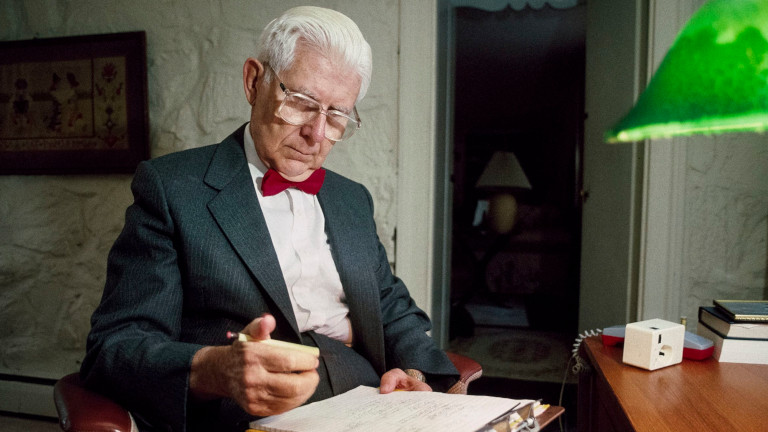This special issue of the Counseling Psychology and Psychotherapy is devoted to the 100th anniversary of Dr. Aaron T. Beck, an outstanding psychotherapist, researcher, and founder of cognitive therapy. To our deepest regret, the issue came out just one day after this great man had gone. Dr. Aaron T. Beck managed to bring the status of psychotherapy as a profession to a new, more advanced level and to make life of many people fuller and happier. The editorial board of the Counseling Psychology and Psychotherapy expresses our sincere condolences to Professor Beck’s family, relatives, and colleagues. The idea behind this special issue was to honour an enormous contribution that Aaron T. Beck made to development of both global and Russian psychotherapy and Dr. Beck’s school heritage became its intrinsic part.
In this special issue, we attempt at presenting articles by international and Russian authors which illustrate the results of the journey that cognitive psychotherapy (CT) has made for the last 25 years since the first special issue of our Journal devoted to CT came out. It was then that the idea of integrating concepts of cognitive-behavioral therapy and cultural-historical psychology was first suggested. In this new special issue, one can trace how these ideas have come into being in specific counseling and psychotherapeutic practice.
The Journal’s editorial board would like to express our deep appreciation to Dr. Judith Beck, Aaron Beck’s daughter, who has kindly agreed to write a foreword to this issue. She is a well-known specialist in the field of CT, President of the famous Beck Institute, an institution with high training standards which has prepared hundreds of brilliant professionals from around the world over many years. The editorial board would also like to extend warm thanks to Dr. Robert Leahy and Dr. Frank Dattilio, our American colleagues and iconic cognitive therapists, whose books were translated into many languages, including Russian, for their kind contributions, which they have made to this special issue, and which are devoted to CT models that they have been developing over many years, i.e. emotional schema therapy (Dr. Leahy) and cognitive-behavioral therapy with couples and families (Dr. Dattilio).
In line with our tradition, one of the articles discusses a highly topical issue of COVID-19. Oleg A. Sychev and his colleagues show that when caught in a situation of forced isolation during the pandemic, many people experience significant psychological difficulties and need various kinds of psychological support, including online formats of psychological help. The authors’ findings provide evidence that Realistic Optimism proposed by A. Beck as a protective factor of mental health allows for predicting people’s behaviors and well-being during self-isolation.
When speaking about the future of psychotherapy, Aaron T. Beck emphasized the need for controlled evidence-based research on effectiveness of various therapy approaches for the treatment of mental disorders. Today, CT has proved effective with a wide range of mental disorders according to numerous meta-analytical findings. One of the articles in this issue elicits CT’s role for understanding of the mechanisms and treatment of a relatively recent diagnostic unit which has specific predictors, and namely – the so-called complex posttraumatic disorder (Maria A. Padun’s narrative review).
This time, our traditional empirical study section includes articles on effectiveness of utilizing CT resources in psychosocial rehabilitation and treatment of persistent mental disorders. These are articles devoted to disorder chronification mechanisms and rehabilitation approaches with people suffering from alcohol dependence (Olga D. Tuchina et al.), depression (Olga D. Pugovkina et al.) and people with mental disabilities living in residential facilities (Maria E. Sisneva).
A separate section deals with a general methodological analysis of psychological help effectiveness using psychological assistance provided by parents to their child who is facing challenges in his/her learning process as an example. Viewing psychological help from the developmental theory perspective complies well with Beck’s predictions that the role of psychological theories will grow as psychotherapy approaches will be refined. Based on the cultural-historical psychology elaborations and their integration with the cognitive-behavioral therapy principles and methods, Victor K. Zaretsky and Antonina A. Ageeva attempt at identifying common conditions of psychological help effectiveness that would not depend on the type of a provider – be it a professional psychotherapist or a parent.
A quarter of a century after Russian specialists got acquainted with CT, we can say that the CT community has arisen and has been actively developing in Russia. That is proved by an excellent news that the 11th Congress of the largest international community of cognitive therapists, the International Association for Cognitive Behavioral Therapy (IACBT), will be held in Russia, in St. Petersburg on June 26th-29th, 2024. You can read about this event in detail at the end of this special issue in the Congress announcement, which Dmitri V. Kovpak, the President of the Russian Association for Cognitive-Behavioral Psychotherapy, wrote specially for our journal.
As the Journal’s editorial board, we strongly believe that Dr. Beck will stay in our memory as a person who made an invaluable contribution to the development of psychotherapy; facilitated its links with psychological science; inspired his followers to search for and constantly improve methods of psychological support that aim at helping people become happier.
